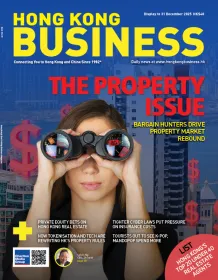
Higher rates pose challenge to economy
Can the negative impact be contained?
It has been noted that higher interest rates are expected to weigh on domestic demand and pose downside risks to economic growth.
According to a research note from Bank of America Merrill Lynch, interest rate increases could affect private consumption and investment through wealth and balance-sheet effects. However, the report said overall negative impact is likely to be contained due to relatively strong household balance sheets and solid fiscal positions.
Here's more from Bank of America Merrill Lynch:
Monetary conditions in HK have tightened recently as the HKD moved towards the weaker end of the band under increasing capital outflow pressures. Aggregate balance, which is the sum of balances in the clearing and reserve accounts maintained by commercial banks with the central bank, is the most visible and readily available daily indicator of fund flows.
As of 25 January, aggregate balance declined by HK$21.0bn since the end of last year. While this was mostly matched by a HK$20.6bn increase in the outstanding Exchange Fund Bills and Notes, it nevertheless signals that the capital tide has reversed from the robust inflows seen in late-2015.
The tightening in monetary conditions is also evident in the interbank rates. The benchmark interest rate, 3M HIBOR, has jumped 30bp to 0.697% since end-2015, which overtook the 3M LIBOR on 21 January. Our strategy team believes downside risks to China’s growth and deterioration in global risk sentiment can exert upward pressure on HIBOR. As a result, our strategists have revised up their year-end 2016 3M HIBOR forecast to 1.90% from 1.45% previously.
Private sector investment growth is also expected to be adversely affected by higher interest rates. Rising borrowing and refinancing costs could suppress investment demand amid heightened financial market volatilities and the subdued global economic growth outlook. That said, continued large-scale infrastructure works, including major infrastructure projects announced in the 2007 Policy Address, will likely mitigate the negative spillover to overall investment growth. The government could also roll out more expansionary fiscal policies to support investment growth given ample fiscal reserves at 35% of GDP and minimal government debt (around 0.1% of GDP).
Credit risks are also manageable in our view. Aggregate corporate debt has risen rapidly in recent years due to fast growth of corporate loans for use outside Hong Kong, mainly in the Mainland. While increased exposures to the Mainland make Hong Kong vulnerable to any significant economic slowdown in China, HKMA’s tight credit underwriting standards and well-capitalized banks should mitigate the risks to the banking system.



















 Advertise
Advertise









